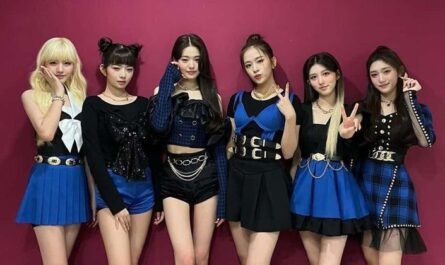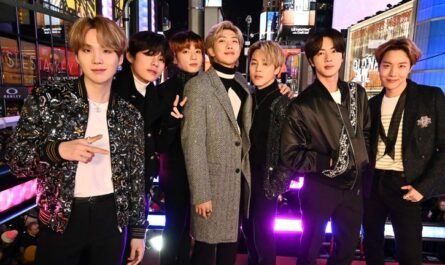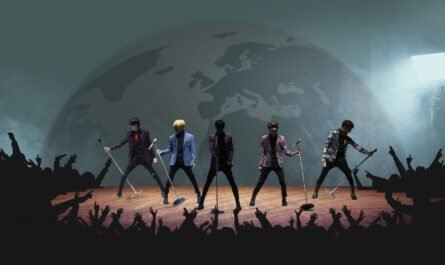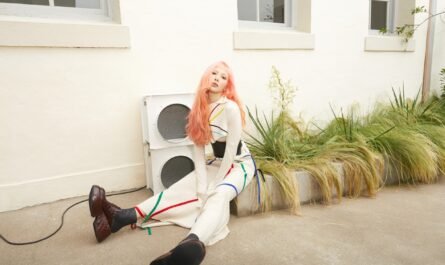Pyongyang, Beritasatu.com – In recent months, North Korean leader ( North Korea ) Kim Jong Un has declared war on the cultural influence of neighboring South Korea ( ROK ). He even described K-pop music as cancer if it penetrated North Koreans.
The push for South Korean popular culture is nothing new to the regime. Korean dramas ( drakor ) and K-pop music have long been used as a type of “soft power” to threaten North Korea’s legitimacy and create loopholes in the country’s rigid communist system.
The cultural influences that South Korea offers to North Koreans showcase life under capitalism, with freedom from hairstyles to whimsical fashion choices.
In December last year, North Korea passed a law known as the “Abolition of Reactionary Thought and Culture Act.” This law aims to limit content such as movies, drama series, and music from outside the country, especially South Korea.
Those found in possession of the material could face up to five to 15 years in prison, while those who distributed the content could be sentenced to life in prison or death.
In April this year, a man is believed to have been publicly executed by firing squad in front of about 500 people illegally selling CDs and USBs containing South Korean video and music content.
While his death is a clear warning, Kim Jong Un’s crackdown on drama and K-pop may be too late. In 2019, a survey of 200 defectors from North Korea reported that 91 percent of them had watched videos from South Korea and other foreign countries while in North Korea.
Every drakor fan is familiar with the term “Oppa,” a word that means big brother, but it has become an affectionate, romantic term for an older man. According to documents received by Asia Press, Kim Jong Un considers terms like Oppa to be South Korean “puppet words.”
The prevalence of this type of word among North Koreans, especially young people, shows the growing influence of South Korean culture there, known as “Hallyu” or “Korean Wave.”
A popular 2019 drama titled “Crash Landing On You” tells the story of a rich South Korean woman stranded in North Korea. In the series, many characters in North Korea are well versed with South Korean popular culture.
Like a soldier who is relied on as an expert in South Korean affairs, it turns out that he enjoys drama. A teenager at the hospital admits that he is the biggest fan of BTS ( South Korea’s most famous boy band ) in Pyongyang. And vendors in the marketplace sell South Korean beauty products.
In the demilitarized zone, or the area separating the two Koreas, South Korea has installed loudspeakers that can be used to send propaganda to North Korea.
In 2016, in response to a nuclear test from the North, K-pop music was installed loud and clear in a show. K-pop hits like Big Bang Bang Bang Bang was chosen to disrupt the communist regime and interest every North Korean listening.
Enjoying
North Korean leader Kim Jong Un himself is listening and enjoying K-pop. In 2018, when the conflict between the two countries was relatively calm, a concert was held in Pyongyang to promote peace. The show “Spring is Coming” featured 11 South Korean artists, including the popular girl group Red Velvet.
According to the North Korean News Agency, Kim Jong Un was “very touched” by the show and by watching other people from the North enjoy it. “We have to hold cultural and artistic performances often,” he told the South Korean artist.
He thanked Red Velvet for their “gift to the people of Pyongyang.”
However, North Korean communist party officials were quick to twist this success story to undermine the influence of Southern culture in the North.
In 2019, the South Korean film Parasite made history by winning an Oscar at the Academy Award for best picture. Then in 2021, BTS became the first K-pop band to be nominated for a Grammy.
But North Korean media described the film Parasite to help people see that “the capitalist system is a rotten and sick society” and that BTS’ achievements were branded as the result of working under slave-like conditions.
So, what triggered Kim Jong Un’s change to be tougher on the culture of his neighbor? It is believed the Covid-19 pandemic has forced North Korea into more isolation.
Kim Jong Un is increasingly desperate with a closed border to China, which has left North Korea with its biggest trading partner and the country’s economy paralyzed.
Worse still, extreme weather conditions, including heavy flooding, have significantly reduced food supplies. At a political conference in June, Kim acknowledged that the food situation in his country was getting worse.
The law on the “Abolition of Reactionary Thought and Culture Act” is unlikely to stop South Korea’s influence on its ailing neighboring country. If North Koreans find more creative ways to access and consume foreign media, Kim Jong Un may have to add the word rebellion to his list of problems.











